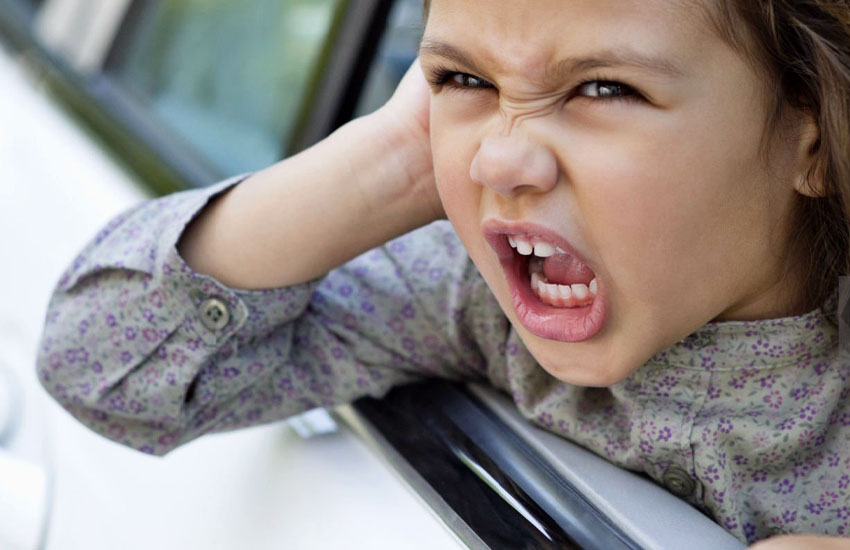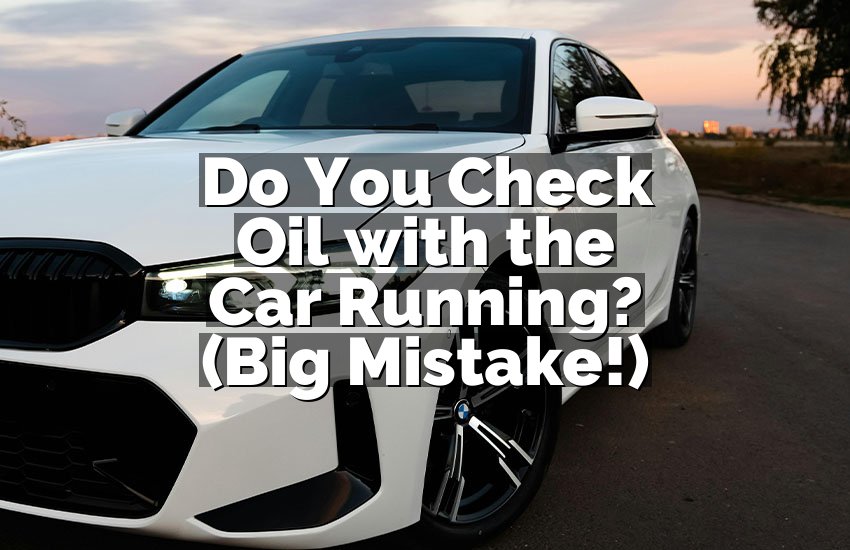A popping noise when accelerating in a car can have various causes and can be fixed by identifying and addressing the specific issue. Car owners may occasionally experience a popping noise when accelerating, which can be concerning.
This noise can be caused by several factors, including a worn-out exhaust system, malfunctioning ignition components, or issues with the fuel system. It is essential to determine the exact cause of the popping noise to ensure appropriate repairs. Whether it’s a problem with the exhaust manifold gasket or a faulty spark plug, addressing the underlying issue is crucial to prevent further damage to the vehicle.
We will explore the different causes of a popping noise during acceleration and discuss potential fixes to resolve this problem efficiently.

Possible Causes Of A Popping Noise While Accelerating
Experiencing a popping noise while accelerating could be due to various factors, such as a worn CV joint, faulty engine mounts, or low transmission fluid levels. It’s crucial to address the issue promptly to prevent further damage. Consulting a professional mechanic for a thorough inspection and repair is recommended to resolve this problem effectively.
Engine Misfire
One possible cause of a popping noise while accelerating is engine misfire. This occurs when one or more cylinders in the engine fail to ignite the fuel-air mixture properly. As a result, the engine produces an irregular firing pattern, leading to a popping noise. This issue is often accompanied by a noticeable lack of power and rough idling. Engine misfire can be caused by several factors:
- Worn or faulty spark plugs
- Bad ignition coils
- Fuel delivery problems
- Timing issues
Exhaust Leak
An exhaust leak can also cause a popping noise when accelerating. This occurs when there is a break or hole in the exhaust system, allowing excessive air to enter, which disrupts the normal flow of exhaust gases.
As a result, the exhaust gases may not be properly expelled, leading to a popping sound. It’s important to address an exhaust leak promptly as it can affect the performance of the vehicle and may lead to increased emissions.
Faulty Fuel Injectors
Faulty fuel injectors can contribute to a popping noise during acceleration. Fuel injectors are responsible for delivering the precise amount of fuel to the engine cylinders.
If one or more injectors become clogged or malfunction, they may not provide the necessary fuel for combustion, causing a disruption in the firing sequence and resulting in a popping noise.
Additionally, faulty fuel injectors can cause issues such as poor fuel efficiency, engine hesitation, and rough idling.
Worn Spark Plugs
Worn spark plugs can be a common culprit behind a popping noise while accelerating. Spark plugs play a crucial role in igniting the fuel-air mixture in the engine cylinders.
Over time, the spark plugs can become worn or covered in deposits, which can hinder their ability to generate the spark necessary for combustion.
This can result in misfires and intermittent popping noises. Regular maintenance, including spark plug replacement, can help prevent this issue.
Ignition Timing Issues
Another possible cause of a popping noise during acceleration is ignition timing issues. The ignition system relies on precise timing to ensure that the spark plug fires at the right moment. If the ignition timing is off, the combustion process can be disrupted, leading to misfires and popping noises.
Ignition timing issues can arise from problems with the ignition system components or even engine sensors that provide feedback to the engine control unit (ECU).
Diagnosing The Issue
When your car makes a popping noise during acceleration, it’s crucial to pinpoint the cause of the issue before it leads to further damage. Here’s how to diagnose the problem…
Performing A Visual Inspection
Start by visually inspecting the engine and its components. Look for any loose or damaged parts, such as worn belts, broken hoses, or leaking fluids. Pay special attention to the drive belts, vacuum hoses, and any visible signs of damage.
Using Diagnostic Tools
Utilize diagnostic tools, such as a scan tool or code reader, to check for any error codes present in the car’s computer system. These codes can provide valuable insight into potential issues with the engine, transmission, or other vital components.
Checking The Exhaust System
Inspect the exhaust system for any leaks, loose connections, or damaged components. A faulty exhaust system can lead to unusual noises during acceleration, so it’s essential to ensure that all parts are intact and functioning properly.
Testing The Fuel Injectors
Perform a comprehensive test of the fuel injectors to ensure they’re delivering the right amount of fuel to the engine. Any issues with the fuel injectors can cause popping noises and affect the car’s overall performance.
Inspecting Spark Plugs
Examine the spark plugs for signs of wear or damage. Faulty spark plugs can lead to misfires, which may result in popping noises during acceleration. Ensure that the spark plugs are in good condition and properly gapped for optimal performance.
Fixes For A Popping Noise While Accelerating

Replacing Faulty Spark Plugs
If your car’s spark plugs are worn out or malfunctioning, they may cause a popping noise during acceleration. To fix this issue:
- Open the hood of your car and locate the spark plugs.
- Inspect each spark plug for signs of wear or damage.
- If any of the spark plugs are faulty, remove them using a spark plug socket and replace them with new ones.
- Tighten the new spark plugs until they are snug but not overly tight.
- Close the hood and start your car to test if the popping noise has been resolved.
Repairing Exhaust Leaks
Exhaust leaks can also cause a popping noise while accelerating. To fix this issue:
- Visually inspect your car’s exhaust system for any signs of leaks, such as soot deposits or visible gaps.
- If you identify an exhaust leak, take your car to a professional mechanic or exhaust specialist for repairs.
- The mechanic will examine the exhaust system and determine the best course of action, which may involve replacing damaged components or repairing the leaks.
- Once the necessary repairs are completed, start your car and listen for any remaining popping noises.
Addressing Ignition Timing
If your ignition timing is off, it can lead to a popping noise during acceleration. To address this issue:
- Consult your car’s manufacturer manual or contact a trusted mechanic to determine the correct ignition timing specifications for your vehicle’s make and model.
- Use a timing light and a wrench to adjust the ignition timing according to the manufacturer’s recommended values.
- Ensure the timing is set accurately by checking the timing marks on the crankshaft pulley and the timing cover.
- Start your car and listen for any remaining popping noises while accelerating. If the noise persists, further adjustments may be necessary.
Cleaning Or Replacing Fuel Injectors
Dirty or clogged fuel injectors can cause popping noises during acceleration. To clean or replace your car’s fuel injectors:
- Inspect the fuel injectors for any visible signs of dirt, corrosion, or clogs.
- If the fuel injectors are dirty, use a fuel injector cleaner according to the manufacturer’s instructions.
- For severely clogged or damaged fuel injectors, it is recommended to have them professionally cleaned or replaced.
- After performing the necessary cleaning or replacement, start your car and check if the popping noise has been resolved.
Repairing Engine Misfire
Engine misfire can cause a popping noise while accelerating. To repair an engine misfire:
- Use an OBD-II scanner to diagnose the specific cylinder(s) experiencing the misfire.
- If a specific cylinder is identified, check the spark plug, ignition coil, and fuel injector associated with that cylinder for any issues.
- Replace any faulty components and clear the error codes using the OBD-II scanner.
- Start your car and ensure the popping noise is no longer present while accelerating.
Preventive Measures
To avoid encountering a popping noise when accelerating in your car, it is important to take some preventive measures. Regular maintenance, using quality fuel and additives, and keeping the exhaust system in good condition can help mitigate the issue.
Regular Maintenance
Regular maintenance plays a crucial role in keeping your car running smoothly. Make sure to follow the manufacturer’s recommended maintenance schedule, which includes oil changes, air filter replacements, and spark plug inspections. By regularly maintaining your vehicle, you can prevent issues like a popping noise when accelerating from occurring.
Using Quality Fuel And Additives
The quality of fuel you use can impact your car’s performance. Opt for high-quality fuel from reputable sources to ensure your engine operates optimally. In addition to quality fuel, consider using fuel additives designed to clean the fuel system and prevent any build-up that can potentially contribute to popping noises during acceleration.
Keeping The Exhaust System In Good Condition
A well-maintained exhaust system is essential for a quiet and smooth driving experience. Regularly check for any signs of damage or leaks in the exhaust system, including the muffler, pipes, and catalytic converter. Addressing any issues promptly can prevent excessive vibrations and popping noises when accelerating.
Following these preventive measures can not only help prevent popping noises when accelerating but also contribute to the overall longevity and performance of your car. By prioritizing regular maintenance, using quality fuel and additives, and keeping your exhaust system in good condition, you can enjoy a quieter and more enjoyable ride.
Conclusion
As you can see, a popping noise when accelerating can be caused by various issues. To ensure your safety and the health of your car, addressing the problem promptly is crucial. By understanding the potential causes and implementing the appropriate fixes, you can prevent further damage and enjoy a smoother driving experience.


